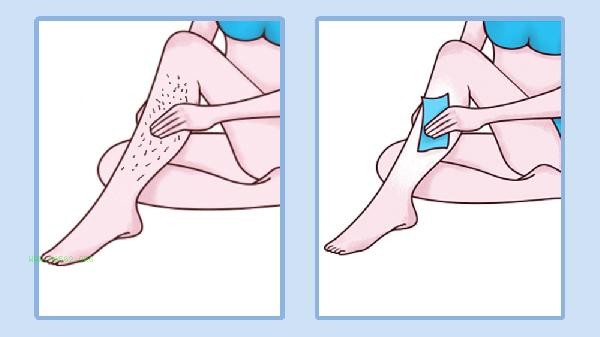Long lip hair in 8-year-old girls may be related to genetic factors, abnormal hormone levels, drug effects, polycystic ovary syndrome, adrenal hyperplasia, and other reasons. It is recommended that parents take their children for medical examination in a timely manner, clarify the specific reasons, and intervene according to medical advice.
1. Genetic factors
Some children's lip hair is significantly related to family genetic characteristics, and parents with strong body hair may increase the probability of similar symptoms in their children. This situation usually does not require special treatment, and if it affects aesthetics, it can be improved through physical methods such as laser hair removal after puberty. Daily attention should be paid to avoiding using a hair scraper to stimulate hair follicles and prevent hair from becoming thicker and harder.
2. Abnormal hormone levels
Excessive secretion of androgens from the adrenal or ovarian glands can lead to abnormal hair growth, which may be accompanied by symptoms such as acne and increased oil secretion. Diagnosis should be confirmed through six blood hormone tests, and if necessary, anti androgen drugs such as spironolactone tablets should be used for regulation. Parents should avoid giving their children hormone supplements and reduce high sugar and high-fat diets.
3. Drug Effects
Long term use of eczema ointments or asthma inhalers containing glucocorticoids may cause side effects such as hirsutism. Common medications include fluticasone propionate cream, budesonide aerosol, etc. Parents need to verify their child's recent medication history and adjust the medication plan under the guidance of a doctor. They cannot stop taking medication on their own.
4. Polycystic ovary syndrome
can lead to an increase in testosterone levels, manifested as dense hair around the lips, jaw, and other areas, which may be accompanied by symptoms such as menstrual disorders and obesity. Diagnosis and treatment require ultrasound and hormone testing. Metformin sustained-release tablets are commonly used to regulate metabolism, in combination with drugs such as ethinylestradiol and cyproterone acetate tablets. Suggest controlling weight and increasing physical activity.
5. Adrenal hyperplasia
Congenital adrenal hyperplasia can lead to disorders in cortisol synthesis, increased secretion of androgens, and may result in symptoms such as clitoral hypertrophy and accelerated growth. Diagnosis requires ACTH stimulation test, and treatment requires lifelong use of hydrocortisone tablets as a replacement therapy. Parents should regularly monitor growth and development indicators as well as hormone levels. In daily life, parents should avoid paying too much attention to their children's body hair problems, which can cause psychological pressure. They should choose gentle children's grooming products to clean their faces and do sun protection when going out. Supplement more whole grains and dark vegetables rich in vitamin B family in diet, and limit the intake of trans fatty acids. If a child is found to have symptoms such as menstrual abnormalities and thickened voice, they should immediately seek medical attention at the pediatric endocrinology department. After confirming the diagnosis through bone age testing, ultrasound, and other examinations, standardized treatment should be administered.








Comments (0)
Leave a Comment
No comments yet
Be the first to share your thoughts!